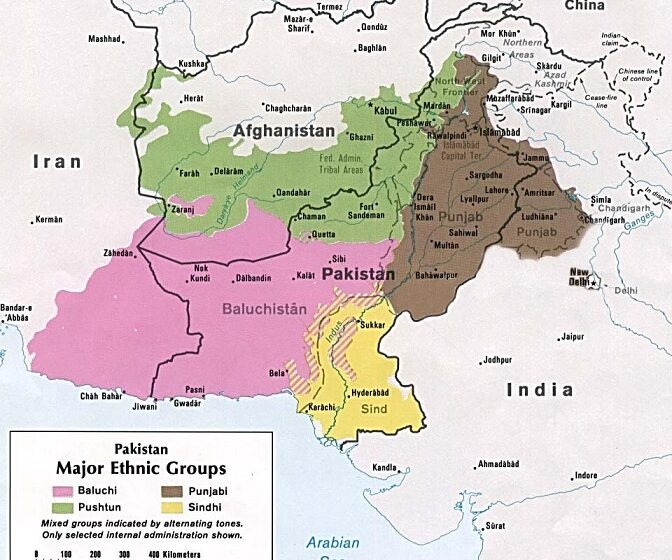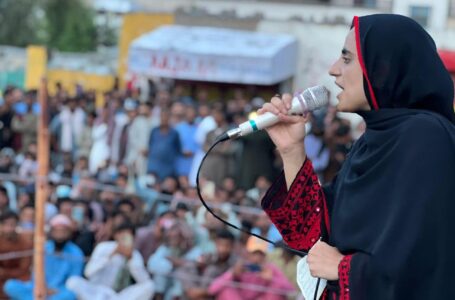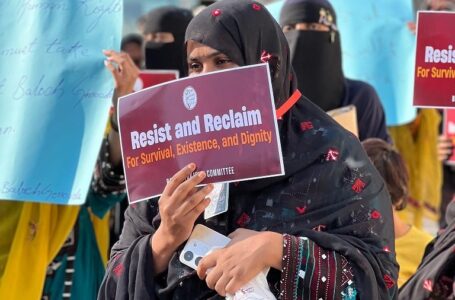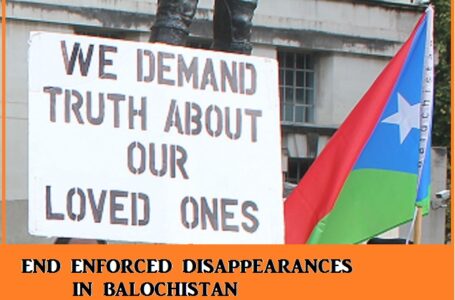Baloch Students’ Forced Disappearances on the Rise: BSAC Demands Immediate Action
Operation Azm-e-Istehkam: Pakistan Acts at China’s behest

Author: Siraj K
Since Pakistan’s occupation of Balochistan in 1948, the region has endured prolonged adverse treatment characterised by a series of military operations. Major military operations occurred in 1948, 1958-59, 1963-69, and 1973-77, and have been ongoing since 2004, resulting in thousands of deaths among the Baloch nation. These actions have led to widespread destruction of homes and livelihoods. The Baloch people have faced forced disappearances, extrajudicial killings, and severe human rights abuses.
Despite its rich natural resources, Balochistan’s benefits have been largely extracted by the Punjabi establishment, leaving the region with stagnated economic, cultural, and technological development. This systemic colonisation and exploitation have fuelled ongoing political movements and resistance among the Baloch people, who continue to demand an independent homeland. On the one hand, Pakistan vociferously calls for the independence of Kashmir and Palestine, while on the other, it is responsible for the deaths of thousands of fellow Baloch Muslims and the occupation of Balochistan.
The Pakistani government has received substantial funds from Western nations to tackle Islamic terrorism, ignoring the fact that Pakistan was and remains the only country in the modern era, apart from the Islamic State of Iraq and Syria (ISIS), that was purely established in the name of political Islam.
Chinese involvement in occupied Balochistan has worsened the situation for the Baloch nation. The China-Pakistan Economic Corridor (CPEC) has been developed on the suffering and bloodshed of the Baloch people. Both China and Pakistan are exploiting Balochistan’s rich resources with impunity, prioritising their strategic and economic interests over the welfare of the local population.
China has covertly supported Pakistan’s efforts to suppress the Baloch liberation movement due to its strategic interests in Balochistan. However, China is now openly demanding that Pakistan use its full might to crush Balochistan’s democratic national struggle against Pakistani colonisation. Pakistan has launched a new military operation under the pretext of targeting the Pakistani Taliban and Islamic terrorists. However, the international community is aware that Pakistan has fostered and protected armed Islamist elements. How can a country whose very existence depends on political Islam counter its ideological allies?
Pakistan’s current geography consists of three main areas: the former parts of India, such as Punjab and Sindh; the former independent state of Balochistan, which Pakistan colonised in 1948; and the former Afghan/Pashtun lands now part of Khyber Pakhtunkhwa. Indian Muslims, Punjabis, Sindhis, and Urdu-speaking migrants have experienced an identity crisis and have embraced Islam as their core identity. However, the Baloch have resisted the occupation of their country from the beginning, and despite the Pashtuns’ religious conservatism, they have a strong cultural identity and historically see themselves as an extension of Afghanistan.
This is why the Pakistani state believes that the ethnic cleansing of the Baloch and Pashtun nations would cement its rule over occupied Balochistan and the Pashtun lands. It is time for the international community, especially Europe and America, to hold Pakistan accountable for its crimes and stop the Pakistani military aggression initiated by the Chinese order.
About the author: Siraj K is a Baloch political activist and a member of the Free Balochistan Movement’s UK Branch










